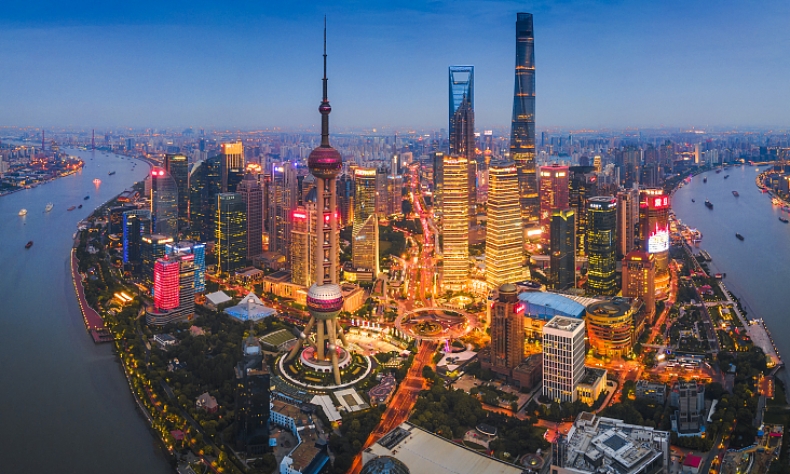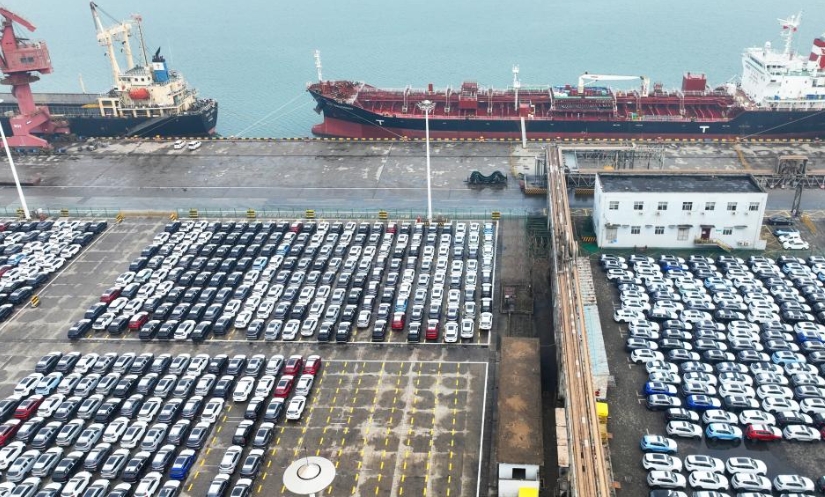Cooperation Needed More Than Ever to Navigate Economy Against Headwinds

In a world beset by economic uncertainties, crises, and ever-shifting dynamics, cooperation is not an option; it is the only way forward.
In the face of new challenges including economic slowdown, trade disputes and the pressing issue of climate change, it is imperative that all countries and regions work together to break the shackles of politicization and strive for sustainable development. This voice was strongly echoed during an international forum held by the Center for China and Globalization (CCG) in Beijing last week, where attendees shared their optimistic perspectives on China’s development and global cooperation.
Is China’s economy collapsing?
Will China’s economy continue to improve or decline? This has become a prominent topic of discussion lately, particularly as some in the western media portray a “sluggish” post-pandemic recovery and amplify claims of an impending economic “collapse.”
Chen Deming, former Chinese Minister of Commerce summarized three major problems facing the Chinese economy, namely, the international economic downturn, U.S. sanctions on China, as well as domestic challenges. Though downward pressure on China’s economy still remains and the recovery process is predicted to be prolonged, it is believed that a relatively complete recovery will be achieved in the next one or two years, Chen said.
Just as the saying goes “the sun always shines after the storm,” China’s economy will continue to recover on a generally sound track of rebound and remain as a major engine for the global economy.
China is the largest trading partner for more than 140 countries and regions, and its total trade in goods ranks No.1 in the world. Data also shows that foreign firms continue to invest heavily in China despite pressure from their governments to reduce exposure. German direct investment, for example, increased as a share of the country’s overall investment abroad during the first half of 2022, remaining close to its record high in 2022, according to an analysis by the German Economic Institute.
Roberta Lipson, vice chairman of the American Chamber of Commerce in China (AmCham China), reminded the forum that China is still the second largest world economy and continues to grow at 5 percent. “According to the latest AmCham members survey, China continues to be the number one or the number two priority market in many categories, and 40 percent of our respondents didn’t plan to reduce their investment in China and another 24 percent still had plans to increase investment,” she added.
The infamous “China collapse” theory has been proven to be a laughingstock. As a crucial driver of stable growth in the global economy, China’s high-quality economic development will instill significant confidence in the world economic recovery. All sorts of comments predicting the collapse of China’s economy keep resurfacing now and then, but China’s economy has outlived them all, said Chinese Foreign Ministry Spokesperson Mao Ning. “What has collapsed is such rhetoric, not China’s economy.”

Cooperation needed in sustainable development
During the forum, U.S. Ambassador to China Nicholas Burns stressed the importance of the United States and China working productively together and expressed his confidence in China-U.S. cooperation. He noted that during the meeting in Bali, President Xi Jinping and President Joe Biden discussed many issues and outlined five areas of joint cooperation, namely, narcotics, food security, agriculture, global health and climate.
It ought to be noted that China and the U.S. have decided to establish two working groups, which will cover economic and financial sectors, China’s Ministry of Finance announced last Friday.
As the global economy faces considerable challenges, it is important to increase engagement and stabilize the turbulent China-U.S. relationship. The solution to today’s challenges, said Steven Barnett, IMF senior resident representative in China, lies not in fragmentation, but rather in renewing the spirit of international cooperation.
In the context of uncertainties and economic headwinds, the imperative for nations to work together has never been more pronounced. China’s remarkable economic growth has brought about significant development results both domestically and globally. Beate Trankmann, resident representative of UNDP China, spoke highly of China’s achievements over the past 40-plus years of reform and opening up. “We have an opportunity to scale up demand-driven South-South and trilateral cooperation as a mechanism that can leverage comparative advantages of players, while also providing context-specific solutions to countries’ unique sustainable development challenges,” she said.
Meanwhile, some Western developed countries have been building “small yards with high fences” and advocating decoupling or de-risking – policies that will greatly disrupt industrial and supply chains. Wu Hongbo, Special Representative of the Chinese Government on European Affairs, noted that China will always serve as a key partner for cooperation and expressed regret that such a key partner is considered as systemic rival – a position, he said, which is neither reasonable nor logical.
“Sometimes the business operations are politicized, or even weaponized,” Wu said, “Some countries, unfortunately for the sake of being politically correct, bowed to the pressure of a superpower at the cost of the prosperity and stability of Europe and the interests of its people.”
In a world beset by economic uncertainties, crises, and ever-shifting dynamics, cooperation is not an option; it is the only way forward. It is only through negotiation and collaboration that we can resolve disputes and overcome the barriers to progress and mutual understanding.
 Facebook
Facebook
 Twitter
Twitter
 Linkedin
Linkedin
 Google +
Google +










